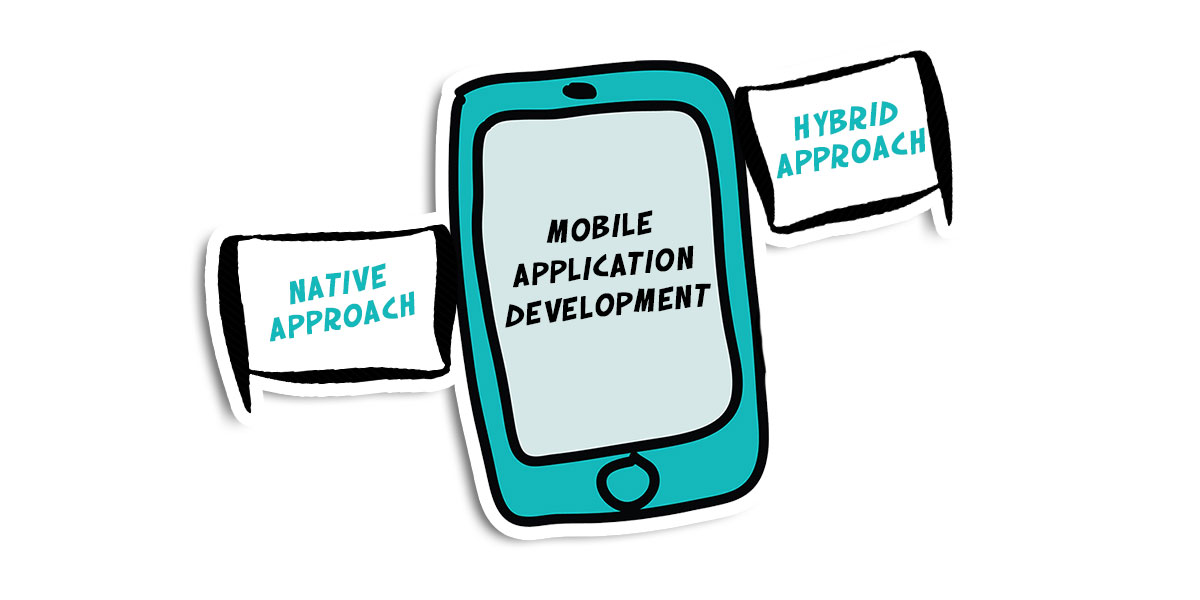Mobile Application Development: Native, Hybrid, Cross-Platform


With every passing year, digital expertise is rolling out the mobile industry. To this end, new changes are continuously emerging in mobile applications, and this creates confusion for developers to choose the right approach for developing applications that must be compatible with smartphones. Generally speaking, it depends on the budget, application features, developer’s expertise, target audience and application output. In this article, we discuss the top three methods to design a mobile application and show a comparison between these approaches. Let’s begin with the native platform;
1. Native Approach
As the name indicates, in the native approach, developers develop the same application for every platform in a separate way. For instance, different development toolkit will be used for different operating systems. Tools include AppCode, Atom and Xcode powered by C++, swift, C-sharp and objective C programming languages will be utilized for iOS application development, whereas Android native development toolkit synchronized by Kotlin and Java will be preferred for Android platform.
From the customers’ point of view, the native approach is the best way to achieve high UI experience. As the application follows the native language of OS, therefore, users don’t find any compatible issues, creating high performance in the application. From the developers’ perspective, it becomes easy to endorse all the functionalities into the application. On the flip side, it is a stressful task to write separate codes for every OS and budget is a major issue in this approach.
2. Hybrid Approach
Unlike a native application, a hybrid app is inexpensive to build and fast to deploy. If you want to launch your product’s application in a limited time frame, then the hybrid platform is the right choice for you. Apart from this, this approach also brings code sharing capabilities, which are restricted in the native platform. But like all the other platforms, it has disadvantages too;
- It is not the best option for UX.
- Hybrid apps are lethargic.
- Need internet connectivity to experience complete features.
- It doesn’t work perfectly for complexed applications.
- Developers often require plugins to induce different features in an application, but some time due to the outdated nature of plugins, these features could not achieve reliable performance.
On the code side, developers fuse web elements with mobile units to use premium web technologies for creating mobile applications. The most common web technologies include;
- JavaScript
- HTML
- CSS
Visual Studio, Ionic and Apache Cordova are the names of tools to build hybrid applications. However, the main challenge in creating Hybrid applications is to leverage the utmost UX.
3. Cross-Platform Approach
The cross-platform approach revolves around three tools, React Native, Xamarin and flutter. It is a cost-effective solution, capable of offering seamless integration and outstanding functionality, but performance and customization are main issues. Though it looks like hybrid and cross-platform are similar approach, but they aren’t. Cross-platform becomes a reliable choice in contrast to hybrid when time and budget are major factors.
So, who’s winning the battle?
Honestly, we can’t select any specific platform or approach as all of them have good and worst sides. It all depends on what are you looking for in application development; If you need high customer experience then you may go for a native platform, if you have limited budget constraints, then a hybrid is the best approach, however, if you want multiple platforms for your application, then cross-platform may be the best path to go.







